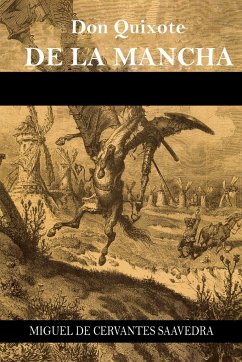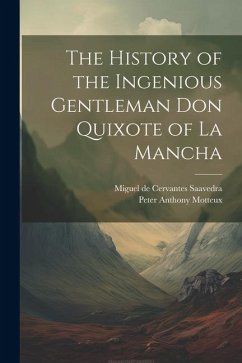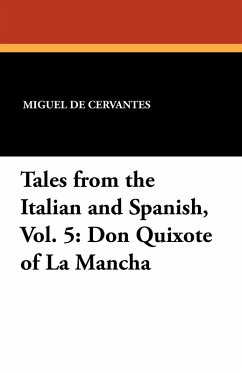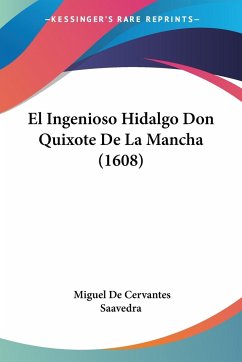
Don Quixote de la Mancha
Versandkostenfrei!
Versandfertig in 1-2 Wochen
31,99 €
inkl. MwSt.
Weitere Ausgaben:

PAYBACK Punkte
16 °P sammeln!
Don Quixote, originally published in two parts in 1605 and 1615, stands as Cervantes' belated but colossal literary success. A work which has achieved mythic status, it is considered to have pioneered the modern novel. Don Quixote, a poor gentleman from La Mancha, Spain, entranced by the code of chivalry, seeks romantic honor through absurd and fantastic adventures. His fevered imagination turns everyday objects into heroic opponents and stepping stones to greater glory; each exploit serves as a comic, yet disturbing commentary on the psychological struggle between reality and illusion, fact a...
Don Quixote, originally published in two parts in 1605 and 1615, stands as Cervantes' belated but colossal literary success. A work which has achieved mythic status, it is considered to have pioneered the modern novel. Don Quixote, a poor gentleman from La Mancha, Spain, entranced by the code of chivalry, seeks romantic honor through absurd and fantastic adventures. His fevered imagination turns everyday objects into heroic opponents and stepping stones to greater glory; each exploit serves as a comic, yet disturbing commentary on the psychological struggle between reality and illusion, fact and fiction. Text: English (translation) Original Language: Spanish








![The Life And Exploits Of Don Quixote De La Mancha [by M. De Cervantes Saavedra. Transl.]. Abridged Cover The Life And Exploits Of Don Quixote De La Mancha [by M. De Cervantes Saavedra. Transl.]. Abridged](https://bilder.buecher.de/produkte/68/68923/68923221n.jpg)





